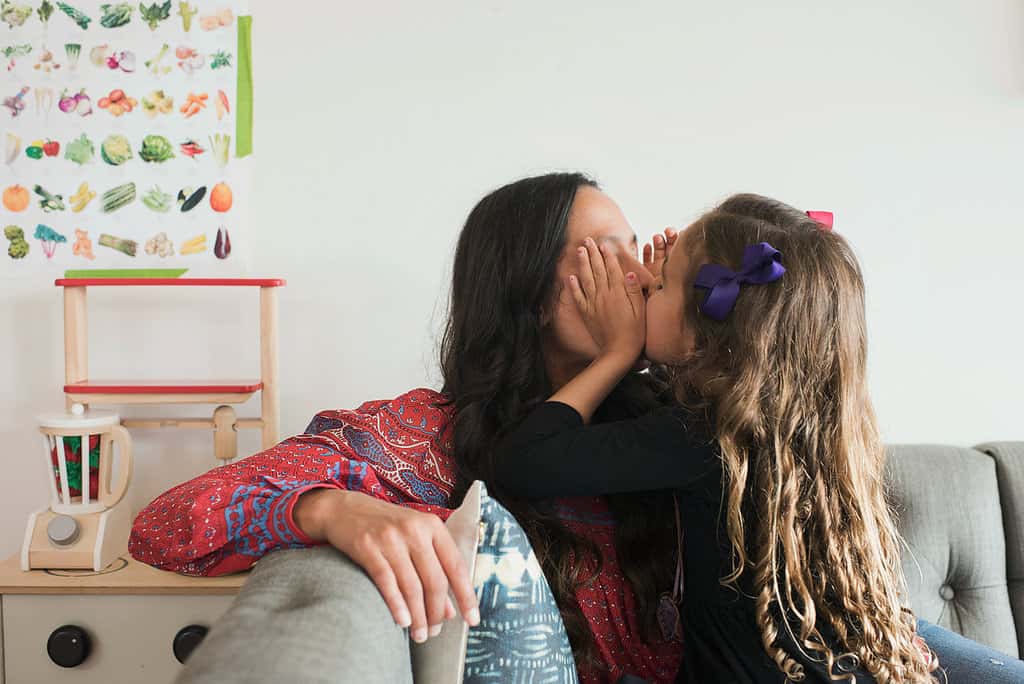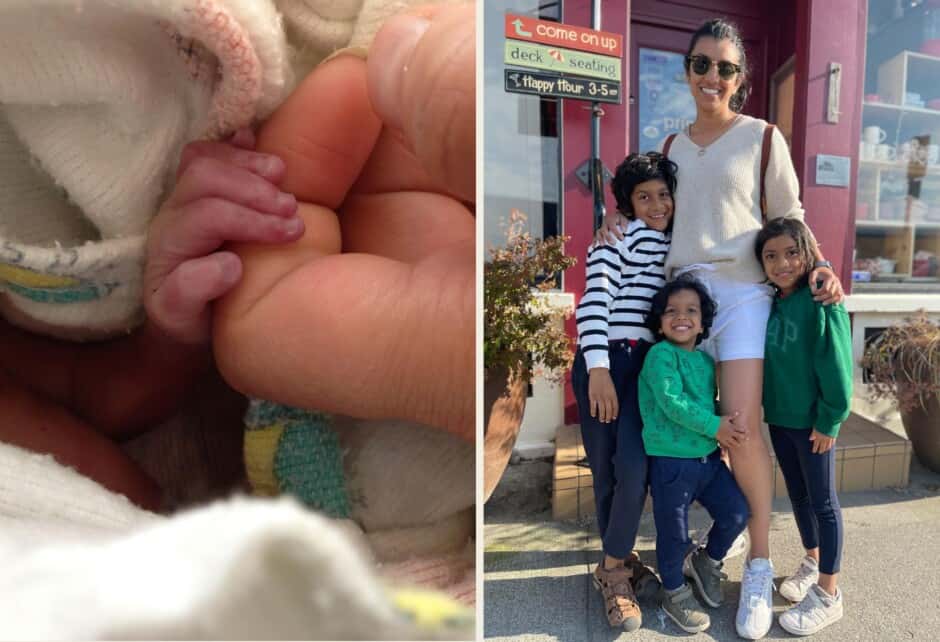
Why Not Hugging Grandma Is OK! Tips To Teach Kids Bodily Autonomy
Written by Julia Feldman
Photography by Ashley Koch, Photographed by SARAH HEBENSTREIT
The setting is a common one this time of year: you’re getting ready to leave a holiday gathering and it’s time to say your goodbyes. You begin to make the rounds and inevitably goodbye hugs and kisses are exchanged. For parents, this portion of the event can be a source of dread; how do you navigate others’ expectations of “proper” goodbyes while respecting your child’s bodily autonomy (their ability to control who touches them and when)?
As a sex educator, my family has grown to expect my parenting approaches to differ from theirs. Though they’ve grown accustomed to my son’s talk about penises and vulvas, the stress about goodbyes still seems to linger. In spite of my best efforts to communicate our values around consensual touch, there’s always the attempt to swoop in at the last minute and steal a clandestine hug from a resistant toddler.
Most people parent differently than how they were parented. One area of change where many encounter resistance from older generations is around body autonomy and the way some perceive refusals of touch as disrespectful. Perhaps you won’t see your uncle again for a whole year! That still isn’t a valid reason to force touch. Refusal of touch isn’t rude and we need to make that abundantly clear. This is one aspect of rape culture that has become so ingrained that it might even be hard to believe. I’ll say it again—refusing touch isn’t rude! Touch should always be consensual.
Just like for adults, it’s important for kids to practice good manners in social situations. They should greet guests, make sure they express their appreciation for gifts, and say goodbye, but it’s never rude to reject unwanted touching no matter how well-intentioned and loving the giver may be.
It’s important for our children (regardless of gender) to understand that they will never be forced to touch or be touched by others. Forcing your child to surrender to an unwanted hug isn’t a sign of respect or deference towards elders, it’s you as a parent normalizing (or assisting in) the violation of your child’s articulated boundaries. If you won’t protect your child from unwanted touch, who will? It’s important that they see you honoring and protecting their boundaries as an advocate. It’s important that they not become accustomed to ignoring their own inner voice of discomfort in an effort to please others. If they begin the process of silencing that voice now (with safe and trusted adults), it will only become the norm to ignore their gut and avoid advocating for their boundaries as they get older and encounter other intimate situations. Simply put, teaching them to articulate their boundaries now and expect those boundaries to be honored will cement that expectation for life.
Here’s the approach that’s worked for us: you as a parent can hug and kiss goodbye as much as you would like but before you begin the rounds, ask your child how they would like to say their goodbyes. If they don’t want to hug or kiss, offer up some alternatives, such as:
*High fives
*Handshakes
*Fist pounds
*Waves
*Blowing kisses
*A verbal goodbye
As you say goodbye, just explain that “s/he wants to give goodbye high fives tonight!” If you encounter resistance (articulated or in the form of a furrowed brow), simply explain, “We’re teaching her/him about the importance of respecting boundaries around touch. We’re allowing her/him to decide what kind of goodbye feels the most comfortable.” Leave it at that, don’t engage in a debate. At the end of the day, your job isn’t to convince your family that your parenting style is best, it’s to parent in the way that will best serve your child. These valuable lessons are the gifts that will stay with your kids for life.
For more more ace advice from Giving The Talk‘s Julia Feldman, you can follow her on Instagram at @givingthetalk, and read her pieces on Teaching My Toddler Consent (Starting With Tickles), Rape Culture: What It Is & How To Combat It With Your Kids, and 16 Modern Sex-Ed Books For Kids, Tweens, and Teens.
Share this story



